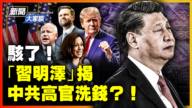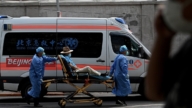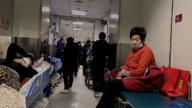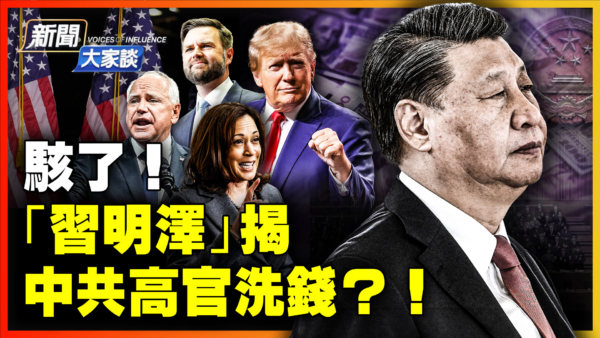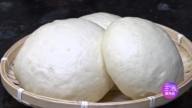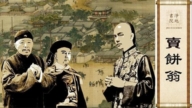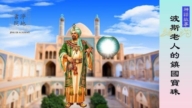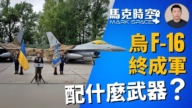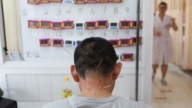【新唐人2012年3月7日讯】广东省乌坎村村委会选举,4号进行了第二轮投票,由洪锐潮当选副主任,孙文良、陈素转、庄烈宏、张建城当选委员。乌坎村在一个月内将再选出9到11名的村民代表监督委员会。这几位新科村委接下来的工作就是实践他们的选举诉求—讨回被盗卖的土地
广东省乌坎村在过去一个月内连续举行了三场的选举,2月3号选出选举委员会,2月11号选村民代表,3月3号选村委会。由于村委会首轮只选出一名主任和一名副主任,于是在4号进行第二轮选举,薛锦波女儿薛健婉在家人的反对压力下,退出了村委副主任的选举。
大陆乡村选举二十多年来,候选人都是由官方内定,村民投不投票,投谁的票,都改变不了被“官方操纵”的结局。乌坎村民经过一次又一次的抗争,才迫使当局让步,取回了自主选举的权利。不过,这个被称为“中国第一次农村民主选举”的乌坎模式,能不能在中国其他地方复制,备受外界关注。
3月5号下午的人大广东团开放日,多名境外记者向广东省委书记汪洋提问乌坎事件。汪洋坦言,乌坎的民主选举,是按照《村民委员会组织法》和《广东省村民委员会选举办法》来进行,没有任何创新,只不过把《选举法》和《组织法》落实的过程,让这个村子在过去选举中“走过场”的现象得到了纠正。汪洋还透露,可能会在今年下半年适当时候,召开全省性会议,把从乌坎这个点取得的经验教训,用于指导全省加强村级组织建设。
但是政治人物开的支票能不能信任?
成都维权人士浦飞表示,乌坎的选举是在中共体系之内的选举,并不是超法律之外,希望乌坎今天这个结果能延续下去。
浦飞:“我只希望这个态势能保持下去,给大家一个更好一个解决方式的路径,而不要把这个典型路径一味的打破。”
新任的村委会委员信誓旦旦的会为村民讨回土地,然而,要向贪污腐败的政府拿回既得利益,并不是件容易的事。资深媒体人马晓明表示,能不能收回土地还要看村民们继续抗争的情况而定。
杨姓乌坎村民则表示没信心。
乌坎村民杨先生:“我看不出来,会不会要回来也不一定。”
而,新上任的村委会是不是能秉持初衷继续替村民维权?
马晓明表示,新上任的这些村干部是不是能坚持原来的这种立场和态度,这都还判断不出来。
马晓明:“有许许多的村干部,也是村民选出来的,但是选出来以后,他的地位变了,他所面临的利益诱惑非常大,还能不能为村民们办事,维护集体和村民的利益,这个还有待我们看事实是啊。”
土地问题是乌坎去年9月爆发抗争的导火线,新选出的村委会即将面对棘手的土地问题,选后各种利益矛盾也将陆续浮上台面,乌坎街头抗争事件会不会再次掀起,我们继续关注。
新唐人记者周玉林、李庭、朱娣采访报导。
******************
Wukan: New Villager’s Committee Faces Tough Land Issue
On March 4, Wukan Village in Guangdong held its 2nd round of voting for a Villager’s Committee. Hong Ruichao was elected as the deputy chief.
The new committee members are Sun Wenliang, Chen Suzhuan, Zhuang Liehong and Zhang Jiancheng. A watchdog committee consisting of 9-11 members will be
voted in within one month. The newly elected committee members shall fulfill their election promise to take back the lands that local officials sold secretly and illegally.
Guangdong;s Wukan Village has held three phases of elections during the past month. on Feb. 3, the election committee was elected; on February 11, voting was held for villager representatives; and on March 3 there was the election for villager’s committee.
In the first round of elections for a village committee, only one chief and one deputy chief were voted in. On March 4, villagers went to the polls in the
2nd-round election. Xue Jianwan, daughter of Xue Jinbo, quit the race for
deputy chief, when she was opposed by her family members.
In the last 20 years, all the election candidates of mainland villages were internally selected by officials. The vote’s outcomes have never been changed no matter whether the villagers voted or not. Wukan villagers’ persistence in fighting back has forced the Beijing regime to yield, the villagers took back voting rights. Wukan’s voting, labeled China’s first rural democratic election,
is now under the world’s spotlight. The community concerns itself with whether this success can repeated elsewhere in China.
March 5 is the open day for the Guangdong delegation of the National People’s Congress of the Chinese Communist Party (CCP). Wang Yang, the CCP Secretary of Guangdong, was asked by several foreign reporters about the Wukan election.
According to Wang, Wukan’s voting proceeded in line with the Organic Law of the Villagers Committees and the agreed Method for Selecting the Villager Committee of Guangdong Province. Wang claimed that Wukan’s election just put the law
into practice. A specific province-wide conference may be held in the second half of this year, said Wang Yang. The meeting will use the experiences and lessons from Wukan’s voting experience to guide the construction of village-level administration.
Yet, can the politician’s promise be trusted?
Chengdu democracy activist, Pu Fei, says that Wukan’s election is still one that was held inside the CCP system. Pu Fei hopes the outcome that Wukan has achieved so far can be extended.
Pu Fei: “I only hope that this trend can be maintained so as to offer us a better way to solve problems. This opportunity should not be ruined.”
The new village committee members vowed to get back village lands that were taken. However, it is deemed not an easy task to take back the vested interests of corrupt authorities. Ma Xiaoming, a veteran media professional, thinks that
the return of farmlands relies on the villagers’ persistence in continuing to fight.
Mr. Yang, a Wukan villager, expressed no confidence in this solution.
Mr. Yang (Wukan villager), “It can’t tell yet… It’s uncertain that we shall be able to get (the lands) back."
Will the new villager’s committee be able to continue to safeguard the rights of the villagers?
Ma Xiaoming says that the outcome cannot be predicted at the moment.
Ma Xiaoming: “There’re lots of village leaders who were elected by the villagers. But with their change of status, and facing big temptations as to interests, can they still speak for the villagers and safeguard their rights?
Let’s wait and see."
The land issue ignited the outbreak of the Wukan protest in Sept. 2011, The newly elected village committee will soon have to deal with the tough land problem. Various conflicts of interest are expected to emerge after Wukan’s election. Will the Wukan mass protest be sparked once again by these conflicts ? Let us see what happens next.
NTD reporters: Zhou Yulin, Li Ting and Zhu Di



